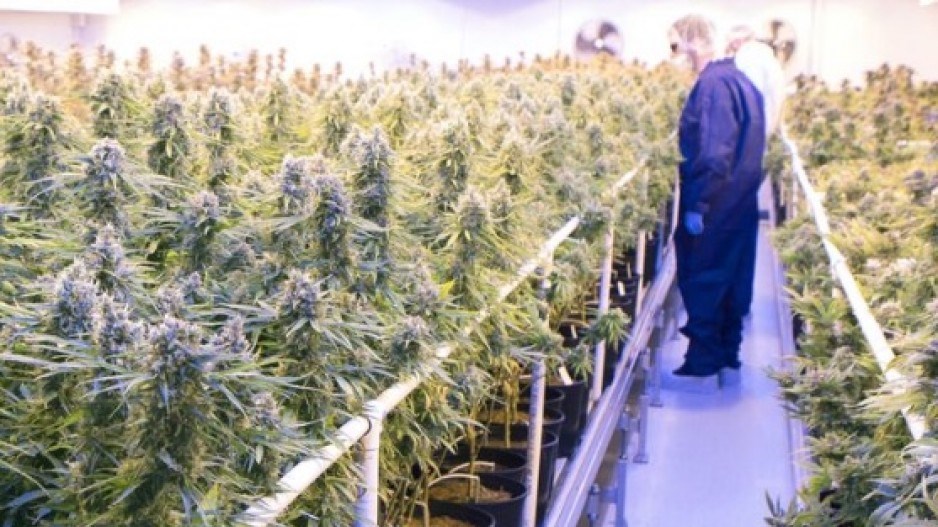Nanaimo-based cannabis grower Tilray has shown spectacular returns for investors since it launched an initial public offering on Nasdaq on July 19 with an initial price of US$17.
By the end of that first day of trading, Tilray’s shares had closed at US$22.39, up 31.7%.
Steady gains since then have pushed shares to close on September 19 at US$214.06, which works out to be a 1,159% return in its first two months of trading and a market capitalization more than US$19 billion.
Shares hit an intraday peak of US$300 – a value that was 1,664% more than the IPO price.
The biggest beneficiary from Tilray’s staggering share-price spike is Seattle-based Privateer Holdings, which owns 76% of the company and is backed by controversial technology entrepreneur Peter Thiel.
Thiel, who backed U.S. President Donald Trump during the last U.S. election, is likely best known for co-founding PayPal in 1999 and steering that fintech venture to be acquired by eBay in 2002 for US$1.5 billion.
Tilray’s financial statements show that it generated about US$20 million in revenue last year and recorded a US$7.8-million net loss.
Investors’ exuberance over Tilray is partly due to enthusiasm over potential for the cannabis sector as a whole. Horizons ETFs Management (Canada) Inc. has an exchange traded fund (ETF) for the marijuana sector (TSX:HMMJ) that holds dozens of cannabis-sector stocks. That ETF's shares have also been smoking hot – up 44.7% – since July 19.
Cannabis company share prices have likely been rising in part because Canada plans to legalize recreational cannabis sales on October 17 and many licensed cannabis growers have been ramping up production to get ready for what is expected to be increased demand. Tilray CEO Brendan Kennedy, however, went on JIm Cramer's Mad Money show on September 18 and said that he believes that the market potential for cannabis has less to do with Canada, and more to do with when the third, fourth, fifth and sixth countries in the world legalize recreational marijuana. Uruguay is currently the only country in the world where recreational cannabis use is legal.
Kennedy added that about eight years ago there were 15 countries in the world that legalized medical marijuana. Today, he said, there are about 35 such countries. He added that he expects there to be about 60 countries with legalized medical cannabis within the next three to four years.
Large investments from multinational companies are also flowing into the cannabis sector. Alcoholic beverage manufacturer Constellation Brands Inc. (NYSE:STZ), for example, announced plans in August to invest $5 billion into licensed cannabis producer Canopy Growth Corp. (TSX:WEED; NYSE:CGC), and increase its ownership stake in Canopy Growth to 38%.
The Coca-Cola Co. (NYSE:KO) is a potential suitor. It announced on September 17 that it is “closely watching the growth of non-psychoactive CBD as an ingredient in functional wellness beverages around the world. The space is evolving quickly. No decisions have been made at this time.”
Some of the excitement in Tilray, however, is specific to the company.
Tilray announced before markets opened on September 18 that the U.S. Drug Enforcement Agency has given it approval to export cannabis to the U.S. for clinical trials.
Tilray will work with the University of California San Diego Center for Medicinal Cannabis Research to study the safety, tolerability and efficacy of marijuana for a neurological disorder known as essential tremor – a condition that causes involuntary shaking, according to the company.
Tilray is also attracting investment dollars because it is listed on Nasdaq.
Other Canadian cannabis companies, such as Canopy Growth Corp. and Cronos Group Inc. (Nasdaq:CRON) are also listed on major U.S. exchanges.
Listing on a major U.S. exchange makes it easier for American investors and hedge fund managers to invest. Most Canadian cannabis companies are listed on the smaller Canadian Securities Exchange.
Watch for an upcoming feature on the cannabis sector and the capital markets in Business in Vancouver's CannaBiz magazine, which is to be distributed September 25. Follow CannaBiz magazine on Twitter @CannaBiz_Mag.




